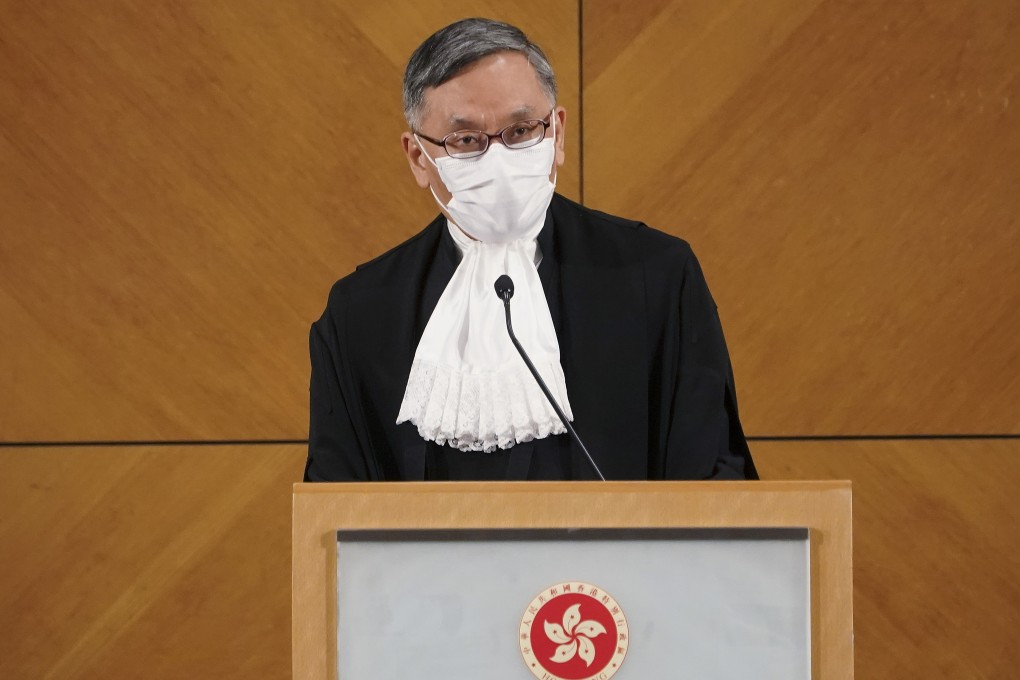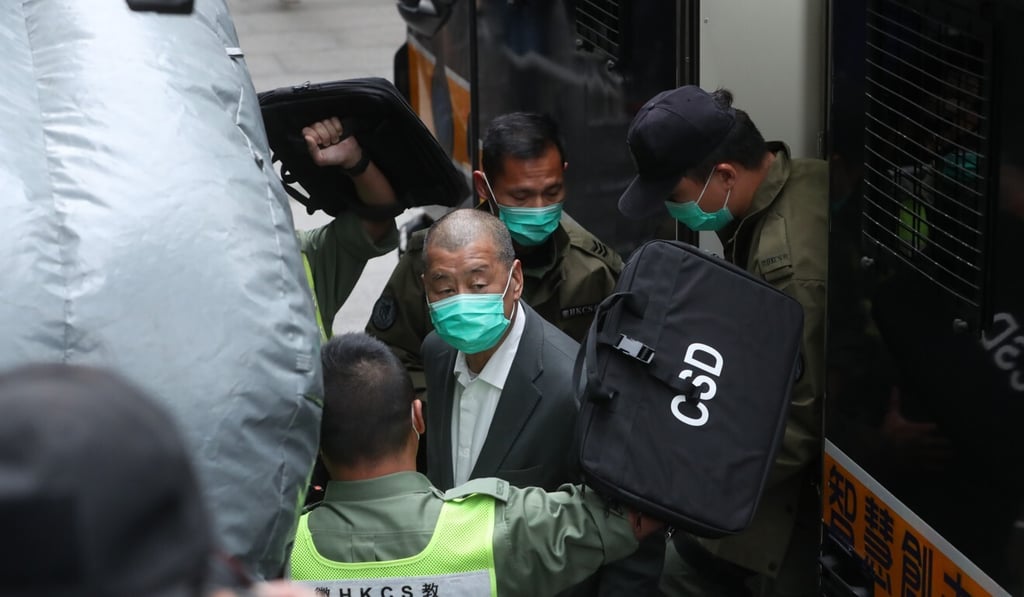Hong Kong’s chief justice hits out over ‘repeated’ attacks on city’s judicial independence
- Andrew Cheung says ‘gratuitous’ questioning of judiciary’s independence damages rule of law
- Day before the speech, District Court judge received threatening phone calls after she sentenced prominent opposition figures

Hong Kong’s top judge has warned against “repeated and gratuitous” questioning of the city’s judicial independence, calling on senior counsel to speak up and defend the reputation of the courts at home and abroad.
Delivering a speech at the Court of Final Appeal as he appointed four new senior counsel, Cheung said judges served “without fear or favour, self-interest or deceit”.

“The judicial power is exercised independently by the courts, not subject to any interference,” he said. “Repeated and gratuitous questioning of the judiciary’s independence, whether domestic or from abroad, which is based on nothing but disagreement with court decisions, is damaging to the rule of law and maintenance of public confidence in our courts.”
But he made no reference to the threats against Woodcock in the speech.